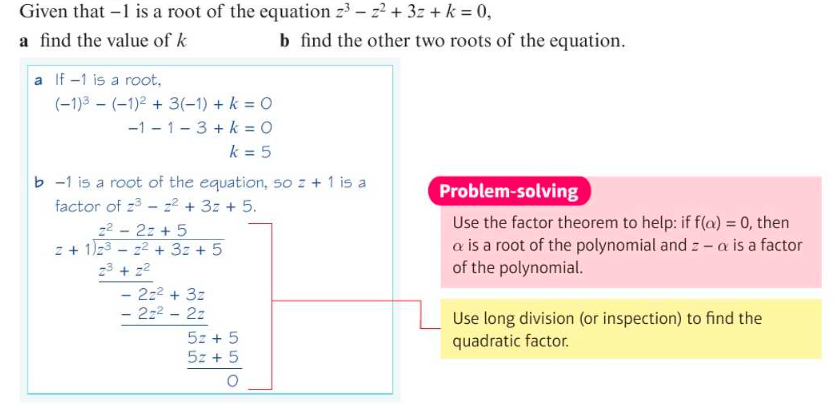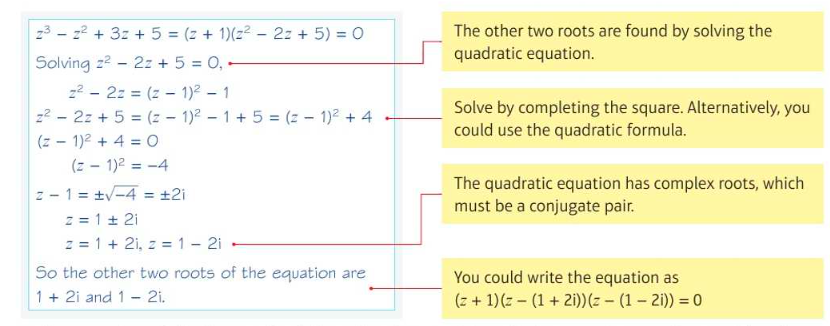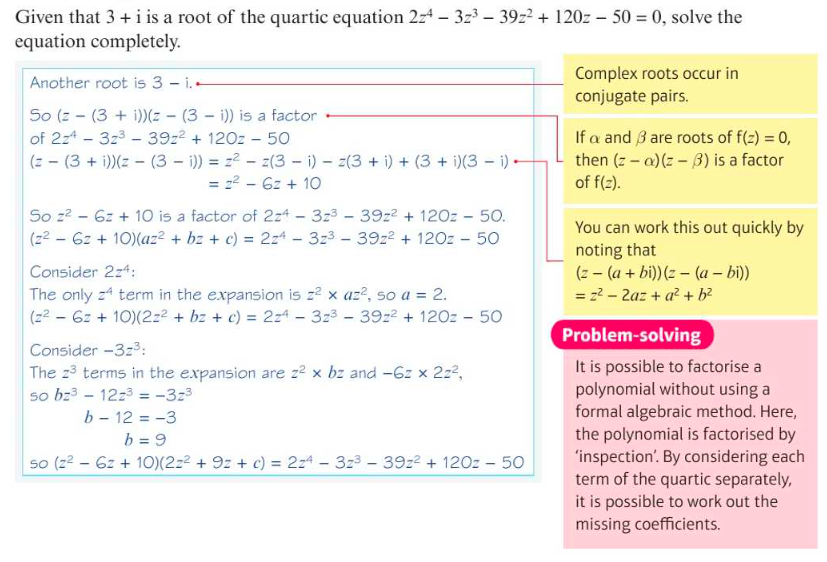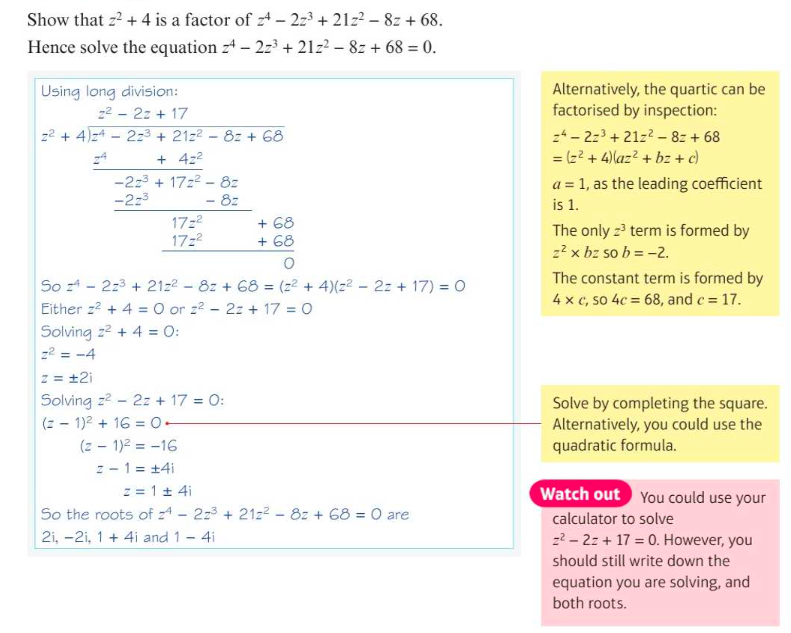Solving Cubic and Quartic Equations
Introduction
⇒ You can generalise the rule for the roots of quadratic equations to any polynominal with real coefficients
⇒ If f(z) is a polynominal with real coefficients, and z1 is a root of f(z) = 0, then z1* is also a root of f(z) = 0
- Note: if z1 is real, then z1* = Z1
⇒ You can use this property to find roots of cubic and quartic equations with real coefficients
⇒ An equation of the form az3 + bz2 + cz + d = 0 is called a cubic equation and has three roots
⇒ For a cubic equation with real coefficients, either:
- All three roots are real, or
- One root is real and the other two form a complex conjugate pair
Examples


⇒ An equation of the form az4 + bz3 + cz2 + dz + e = 0 is called a quartic equation and has four roots
⇒ For a cubic equation with real coefficients, either:
- All four roots are real, or
- Two roots are real and the other two form a complex conjugate pair, or
- Two roots form a complex conjugate pair and the other two form a complex conjugate pair
⇒ Watch out: a real valued quartic equation might have repeated roots or repeated complex roots



Extra
⇒ Also see our notes on: